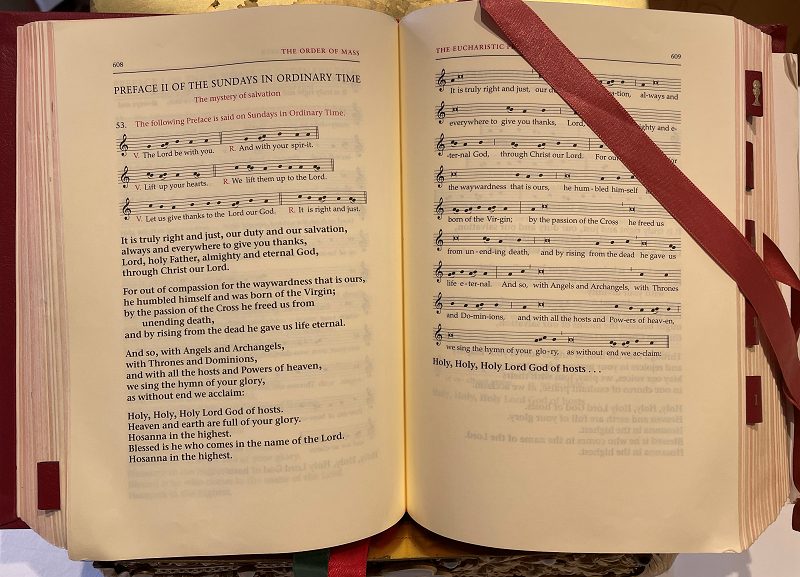
Prefaces of the Roman Missal
We continue with the series on Prefaces of the Roman Missal by Canon Alan Griffiths, as we look at Preface III of the Sundays in Ordinary Time, The salvation of man by a man…
It is truly right and just, our duty and our salvation,
always and everywhere to give you thanks,
Lord, holy Father, almighty and eternal God.
For we know it belongs to your boundless glory,
that you came to the aid of mortal beings with your divinity
and even fashioned for us a remedy out of mortality itself,
that the cause of our downfall
might become the means of our salvation,
through Christ our Lord.
Through him the host of Angels adores your majesty
and rejoices in your presence for ever.
May our voices, we pray, join with theirs
in one chorus of exultant praise, as we acclaim:
The text is largely drawn from the Verona Sacramentary, and there are parallel texts in the Ambrosian Missal. It is a highly compacted text in the Latin, and hard to translate adequately, because any translation requires expansion to convey the sense properly. The English given in the Missal has been controversial, and is not really adequate. It’s not so much ‘the cause of our downfall’, as ‘the outcome of our downfall’.
The Preface is a profound and beautiful meditation on the theme of the Incarnation as itself a redemptive event. The word ‘mortal’ is repeated twice, as ‘mortal beings’ and ‘mortality itself’. ‘Mortal’ and ‘Mortality’ are the keys to the whole text.
‘Mortality’ is what Adam and Eve discover when they eat the forbidden fruit. God names it: ‘dust thou art…’ They become subject to death, mortal. In the language of the text, perierant, perditos, they were lost. In mind here is Jesus’ saying that The Son of man came to seek out and save what was lost (Lk.19:10).
And it is this very mortality assumed by the Word which saves the human race through the Paschal Mystery.
The highly compressed Latin reads: and [for] those also who were lost, whence came their loss, thence you brought their salvation.
St. John Henry Newman expressed the same idea beautifully in his great hymn:
O wisest love! That flesh and blood
Which did in Adam fail;
Should strive afresh against their foe,
Should strive and should prevail.
That result of the ‘fall’ is exactly what God employs to save humankind. The eternal Son. the Word, becomes flesh, mortal flesh, and in that flesh, with and through that mortal flesh, he works the work of salvation in the Paschal Mystery.
Caro cardo salutis (Tertullian): the flesh is the hinge on which salvation turns.
